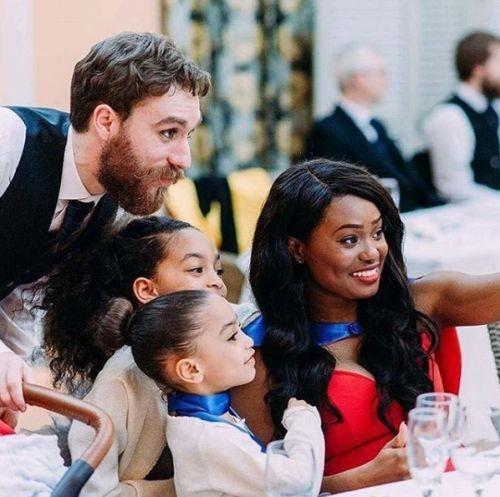Interracial marriage is a union between individuals from different racial or ethnic backgrounds, a beautiful manifestation of love that transcends societal boundaries. People would probably have different opinions regarding the subjects.
For example, people living in interracial relationships can support the marriage, people who were in it would also have something to say about it, and people who do not live in it would have their point of view regarding the subjects. This content aims to outline the general points of interracial marriage.
In this article, we will delve into the intricacies of interracial marriage, its advantages, and disadvantages, and how to prepare for such a unique journey. We’ll also explore the potential outcomes, both positive and negative, that can arise from these unions.
Advantages of Interracial Marriage
-
Cultural Enrichment
Interracial couples often bring diverse cultural experiences into their relationships, leading to a rich tapestry of traditions, customs, and cuisines. Many people are tempted to discover new things about themselves, and entering into a mixed marriage is a chance for most to share the benefits of each of their cultural backgrounds.
For example, the partners can decide how the wedding will be run: will they focus on the culture of one at the expense of the other? What are the common points of each culture, will it be difficult for the children to acquire these benefits? Are there any traditions that are controversial for both partners? Interracial marriage is not only beneficial for both partners, it’s also beneficial for both communities in terms of cultural diversity.
-
Breaking Stereotypes
These unions challenge and break down racial stereotypes, fostering greater understanding and empathy among communities. It’s more than obvious, as we pointed out earlier, that interracial marriage will not only benefit the couple wishing to marry, but the whole community. There’s a lot of fear of hate speech, degrading myths, insults, and even lies that one community may have about another, but interracial marriage fosters this diversity, this openness of mind for each community.
-
Stronger Relationships
Interracial couples often report stronger relationships because they must navigate challenges together, promoting open communication and resilience. As we pointed out in the previous point, facing all these controversies may seem difficult for the couple, on the other side a family or a set of friends or even an entire community that do not agree at all on this marriage, fortunately, these kinds of challenges in love will only strengthen the bond between the two partners, the relationship will be laid on solid foundations when the couple stands up against all its stereotypes.
Disadvantages of interracial marriage
-
Discrimination and Bias
Interracial couples typically encounter discrimination and bias from society, which can manifest in various ways. Racial slurs, derogatory comments, and even outright hostility are experiences that many interracial couples face. This discrimination can take a significant toll on the emotional well-being of the individuals involved and place a strain on the marriage itself. The constant need to defend one’s relationship can be exhausting and emotionally draining.
-
Family Conflicts
Family plays a crucial role in the lives of most individuals, and when family members do not approve of interracial marriage, it can create significant stress and conflict. In some cases, family members may be openly opposed to the relationship, leading to strained family gatherings and fractured relationships. The emotional turmoil caused by these conflicts can spill over into the marriage, creating additional challenges for the couple to navigate.
-
Cultural Conflicts
Interracial couples often find themselves at the intersection of two or more cultures with differing expectations, traditions, and values. These cultural conflicts can be a source of tension within the marriage. For example, differences in child-rearing practices, religious beliefs, or gender roles may lead to disagreements and misunderstandings. Couples must work diligently to bridge these gaps and find a balance that respects each other’s cultural backgrounds.
-
Identity Complexities
Individuals in interracial marriages may grapple with questions related to their own racial and ethnic identities. They may face pressure from others to identify with one particular racial group, which can create a sense of isolation or confusion. Additionally, children born into interracial families may struggle with questions of identity as they navigate their mixed heritage. These complexities can add an extra layer of challenge to the marriage as couples work to understand and support each other’s identities.
-
Legal and Social Considerations
Depending on the regions or countries where interracial couples reside, they may encounter legal and social challenges. Immigration laws, for instance, can be complex for couples from different countries. Additionally, social norms and expectations can vary widely, impacting the acceptance of interracial relationships. These legal and social considerations can add stress and uncertainty to the marriage, as couples navigate a landscape that may not always be welcoming or accommodating.
Despite these disadvantages, it’s important to note that many interracial couples successfully navigate these challenges and build strong, loving relationships. Open communication, mutual respect, and a commitment to addressing issues as they arise can help mitigate the negative effects of discrimination, family conflicts, cultural differences, identity complexities, and legal and social considerations. Ultimately, the disadvantages of interracial marriage, while significant, are not insurmountable, and many couples find that the love and connection they share are well worth the effort required to overcome these challenges.
Preparing for an Interracial Marriage
Interracial marriage is a beautiful union of love that transcends racial or ethnic boundaries. However, like any marriage, it requires careful preparation and consideration. Here are essential steps to take when preparing for an interracial marriage:
-
Open Communication
Effective communication is the cornerstone of any successful marriage, and it is even more critical in interracial relationships. Both partners should engage in open, honest, and respectful conversations about their cultural backgrounds, beliefs, and expectations. This communication helps build a strong foundation of understanding and empathy.
-
Cultural Education
Embracing each other’s cultures is a vital aspect of preparing for an interracial marriage. Take the time to learn about your partner’s customs, traditions, and values. This not only deepens your connection but also helps prevent potential misunderstandings or conflicts rooted in cultural differences.
-
Legal and Social Considerations
Understand the legal and social aspects that may affect your interracial marriage. Depending on your country of origin, immigration laws, and social norms can vary significantly. Being aware of these factors will help you navigate potential challenges and make informed decisions about your relationship’s future.
-
Family Discussions
Discussing your relationship with family members is essential, especially if you anticipate resistance or concerns. Addressing potential family conflicts early on can prevent them from becoming more significant issues later. While it may be challenging, maintaining open lines of communication with both your families is crucial.
-
Conflict Resolution Skills
Every marriage encounters challenges, and an interracial marriage may face unique ones related to cultural clashes or societal prejudice. Equip yourselves with effective conflict resolution skills. This includes actively listening to each other, compromising, and seeking professional help if needed.
-
Building a Support Network
Seek support from friends and communities that embrace diversity. Surrounding yourselves with people who celebrate your love can help counteract any negativity you may encounter from others. Supportive networks can provide guidance, encouragement, and a sense of belonging.
-
Celebrating Differences
Instead of viewing cultural differences as obstacles, see them as opportunities for growth and enrichment. Embrace the beauty of diversity and find ways to celebrate your unique backgrounds. This can lead to a more harmonious and fulfilling marriage.
-
Preparing for Children
If you plan to have children, consider how you will navigate questions of identity and heritage. Be prepared to provide your children with a strong sense of both cultural backgrounds, helping them embrace their diverse heritage with pride.
Getting ready for an interracial marriage requires thoughtful consideration, open communication, and a commitment to understanding and respecting each other’s cultural backgrounds. While there may be challenges along the way, the rewards of a loving and harmonious interracial marriage are immeasurable. By taking these steps to prepare and address potential issues proactively, couples can build a strong foundation for a lasting and fulfilling partnership that transcends racial boundaries.
Important outcomes of an interracial marriage
Positive outcomes
- Cultural Exchange: Interracial couples enjoy the benefits of a more diverse, culturally rich life together.
- Stronger Bonds: Navigating challenges together can strengthen the emotional bond between partners.
- Breaking Barriers: By living a love that transcends racial boundaries, interracial couples contribute to a more inclusive society.
Negative Outcomes
- Discrimination: Discrimination and bias from society can lead to stress and emotional strain.
- Family Conflicts: Conflicts with family members who may not approve of the marriage can be emotionally draining.
- Cultural Conflicts: Differences in cultural expectations can sometimes lead to marital stress.
Closing Thoughts
In conclusion, interracial marriage is a unique and beautiful journey that comes with its own set of advantages and challenges. While it fosters cultural enrichment and can strengthen relationships, it can also bring about social stigma and family conflicts. Ultimately, whether one supports interracial marriage or not depends on their values and beliefs.
However, embracing love in all its diverse forms is a step toward a more inclusive and harmonious society, where individuals are free to follow their hearts without prejudice.
Want to know more about the DR Congo in general? We recommend you follow us on your favourite social media platforms: Instagram (@congotalks243 and @yafelie), Twitter (@congotalks243), TikTok (@yafelie and @congotalks243), Facebook (@CongoTalks243) and LinkedIn (@CongoTalks243), and subscribe to our YouTube channel.
✅ How to support our works: PAYPAL: https://paypal.me/CongoTalks243
For business inquiries related to CongoTalks243, you can reach out at info@congotalks243.com.






